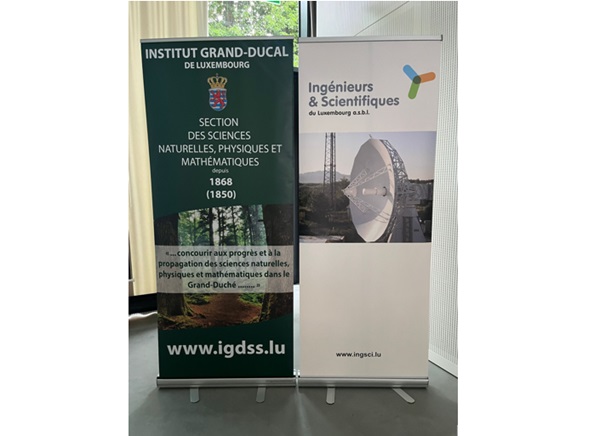 Climate Change conference;
Credit: Yevgenia Doluda
Climate Change conference;
Credit: Yevgenia Doluda
The Luxembourg Institute of Science and Technology (LIST) and the science department of Institut Grand-Ducal collaborated to organise a conference addressing the national impacts of climate change, which took place on Tuesday 18 June 2024 at Forum Da Vinci in Luxembourg City.
The presentation, titled “Climate Change and Biodiversity” introduced the continuous consequences of global warming, such as irregular precipitation levels and the disappearance of species in Luxembourg. It was also noted that the country has experienced rising air temperatures and a streak of ten hottest years. Four experts from various sectors were invited to speak of their work at the conference.
Laura Daco, botanist at Luxembourg National Museum of Natural History, presented her study regarding the effects of changing climate conditions on plant populations. She remarked that besides extinction, populations can migrate to change their distribution or adapt to the new conditions, either by differentiating genetically or expressing different reversible characteristics. It was concluded that populations are genetically adapted to their local conditions but that some populations showed less flexibility to environmental changes, which could limit their ability to respond to rapid climatic changes.
Next, Serena Rauch, plant pathologist and member of the Administration of Technical Agricultural Services (ASTA), spoke about the importance of crop health in Luxembourg. Providing statistics on Luxembourg’s agricultural practices, she concluded by mentioning the potential risks that crop infections may have on the economy and citizen’s well-being.
Microbiologist from LIST, Henry-Michel Cauchie, gave a presentation about his work with mosquitoes and the viral infections they potentially carry. Although not a great concern for Luxembourg at the moment, he noted that abundant travel and changes in the country’s climate patterns pose a risk of cases of malaria and dengue fever in Luxembourg. A special app, Mosquito Alter, has been introduced to engage residents in studies regarding the different species of mosquitoes found in the country.
Lastly, Micha Bunusevac, a hydrologist from Bureau d’études Micha Bunusevac Sàrl, gave an overview of river restoration projects that have been completed or are currently underway throughout Luxembourg. The works aim to restore floodplains and benefit the grazing regime, thus protecting and improving biodiversity. He mentioned that these projects have proven to be resilient against climate change and have even shown to provide socio-economic solutions.
The conference concluded with a brief reception afterwards.
The last meeting from the cycle of conferences is due to take place on 27 June at Forum Da Vinci, addressing “climate change: adaptation and mitigation measures”.








